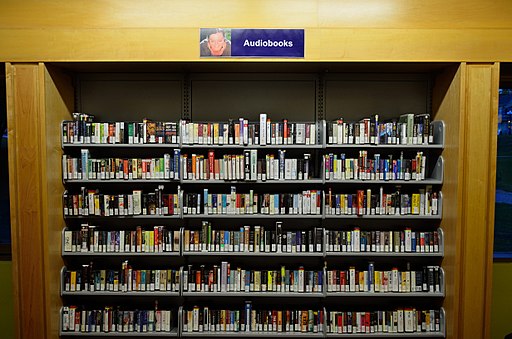
The Rise of the Audiobook
Thanks to the increase in digital technology, there are now more ways than ever to listen to audiobooks. Gone are the days when you had to have a cassette recorder or a CD player – or a parent – to tell you your favourite stories as you went on a long car journey, or when you were tucked up in bed at night, too tired to read yourself. Now, thanks to smartphones, laptops, tablets and more, wherever you are and whatever you are doing you can listen to someone read to you from every genre, in fiction or non-fiction.
With this increase in available platforms came a massive rise in the number of sales of narrated books. So much so that authors of fiction are now actively encouraged to write their books with a consideration given to how they may sound when they read aloud. In the UK alone, in 2014 the audio market rose by nearly 25%, and by 2016, audio-books had become the fastest-growing format in publishing. According to Nielsen Book Research, 59% of audiobook consumers in the UK only started purchasing and listening to the medium in earnest in the last three years.
With the arrival of Audible, Amazon’s audiobook specialist company, even The Bookseller magazine got on board, publishing its own audio chart. As you’d expect, the first audio chart closely reflected the print chart bestsellers, with novels such as The Girl on the Train at the top. If children’s audio-books had also been included, it is highly likely that Stephen Fry’s reading of J.K. Rowling’s Harry Potter series would have been number one for months at a time.
But why are audio books so popular? The answer is simple. People who enjoy a story, whatever their age, love to be read to. It’s easy entertainment, and it means we can enjoy the best books in the world without having to engage in actually picking up the book – perfect after a busy day or on a long journey when we can’t actually hold a book. Audiobooks are the perfect way for bookworms to catch up on the books they simply don’t have time to read, and even reluctant readers will still enjoy hearing a good story.
In an article on the popularity of audio-books in 2016, GQ Magazine asked if audio-books “were the new Netflix”, implying that people were binge-listening to books, just as they binge-watched TV boxed sets. As one of Audible’s early catchphrases correctly predicted: “You can listen when your eyes are busy but your mind is free.” Narrating audiobooks brings in big celebrity names, too; having a famous person read your novel is a fast track to success. The bigger the name of the narrator, the more download sales, statistics suggest.
According to statistics provided by Good E-Reader, “Major publishers are devoting themselves to producing audiobooks of all of their front-list titles.” The tactic appears to be working, for whilst eBook sales decline (they dropped 5% in 2017), digital audio downloads increased in 2017. “In the first three months of 2017 digital audio sales increased by over 28% and it generated over $74 million dollars.”
As well as helping save the troubled publishing industry, audio books are proving to provide significant educational benefit. By listening to more stories, across an ever growing set of genre types, children on their phones, CD players or tablets, are all building wider vocabularies, experiencing more diverse literary styles, and as a consequence, are learning more words in their younger school years than ever before.
